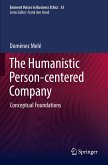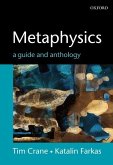The Jesus-centered deists said that orthodox Christianity was not the genuine, pure Christianity that Jesus taught. These deists asserted that Jesus taught only the principles of deism: if you love God and your neighbor, you will be rewarded after you die. They claimed that all the other doctrines of Christianity (such as original sin, the Fall of Man, and the Trinity) had been added by later Christians due to their ignorance or desire to increase their power and status. The Jesus-centered deists did not believe that Jesus was God or that Jesus reconciled humanity to God by bearing humanity's sins. Instead, the Jesus-centered deists emphasized Jesus' life, and they said that people should be like Jesus by following God's will and always being kind, tolerant, and forgiving. Like other deists, the Jesus-centered deists emphasized the superiority of natural religion over revealed religion. (Natural religion is the religion people understand by using their natural faculties, such as their reason, their conscience, and their sentiments.) Unlike stereotypical Enlightenment deists, most Jesus-centered deists believed in miracles and emphasized prayer as a way to get closer to God. In contemporary terms, the Jesus-centered deists were spiritual but not religious (as long as that phrase is confined to meaning people who believe in God but are outside any traditional religious structures). This volume contains excerpts from Jesus-centered deists who published their religious writings from 1800 to 1828. These deists came from many countries including Germany, France, England, and the United States. This shows how widespread Jesus-centered deism had become. This volume contains excerpts from Thomas Jefferson, Thomas Bewick, Daniel Isaac Eaton, Julius Friedrich Knüppeln, Denis Driscol, Andreas Moser, and Jean-Baptiste Mosneron de Launay.
Bitte wählen Sie Ihr Anliegen aus.
Rechnungen
Retourenschein anfordern
Bestellstatus
Storno








